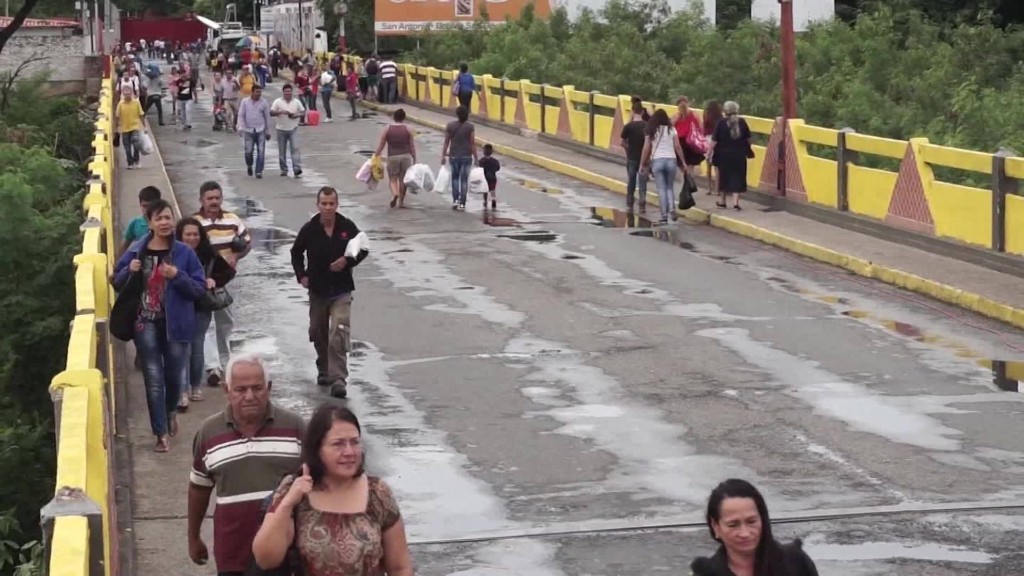
Venezuela's deepening chaos could soon create tremors in the global oil markets.
Already in an economic and humanitarian crisis, Venezuela's oil production -- the country's sole lifeline for revenue -- has hit a 13-year low.
As the situation worsens, Venezuela's oil output could plunge even lower. A new report by Columbia University's Center on Global Energy Policy calls Venezuela a "growing supply risk for oil markets in 2017."
Oil prices are currently around $45 a barrel, a dramatic drop from about $110 two years ago. The main reason for the low prices is that there's too much supply globally. However, the line between oversupply and a shortage in the oil market is thin, and Venezuela could tip the scale in the opposite direction.
Venezuela is the biggest "wildcard out there," said Matt Smith, director of commodity research at ClipperData. "The economy there is spiraling out of control. The fear is that oil production could be the next shoe to drop."
Related: Venezuela is running out of cash
While the rest of OPEC is ramping up production, Venezuela is retreating, despite the fact that it has the largest proven oil reserves on the planet.
Venezuela pumped 2.1 million barrels per day in June, down about 30% from 3 million barrels a day in 2008. June's oil output was also down by 12% from the year before.
However, Venezuela's oil exports during the first half of this year were flat compared with the year before, according to the Columbia report.
That means the impact of the trouble in Venezuela hasn't really been felt, yet.
Venezuela faces major challenges if it wants to keep shipping oil. Its state-run oil company, PDVSA, owes a few billion in debt this fall and many believe it won't be able to pay.
PDVSA has asked its bondholders to exchange short-term debt, which it would have to pay soon, with long-term debt, which it can pay later out. But it's a tough sell to bondholders and would be a pricey deal for PDVSA.
Related: Venezuela ships oil to Jamaica for food and medicine
Two leading American companies, Halliburton (HAL) and Schlumberger (SLB), which provide oil services, announced earlier this year they would cut back operations in Venezuela due to unpaid bills. According to Baker Hughes, Venezuela's rig count has declined by nearly one-third over the past year.
Even without that recent pullout, Venezuela's production has shrunk over the long term. That's because the country has failed to make the expensive yet critical investments in its aging energy infrastructure. Without that, oilfields naturally decline. Columbia pegs Venezuela's natural decline rate at a painful 15% to 25%.
High oil prices are no longer masking this underinvestment problem.
"It's been a short-termist attitude they've taken -- and now it's coming home to roost," said Smith.
Related: Venezuela food shipments fall off a cliff
Others believe further production outages in Venezuela would be quickly met by new supply from the U.S. and others globally. After all, U.S. production is down by roughly 800,000 barrels per day from the recent peak, and American producers seem to have ample flexibility to respond to supply shortages.
Still, even those weary of Venezuela's global impact agree that its production will keep falling and the country's current path is unsustainable.
"We are not running out of oil, we're running out of cheap oil -- that's where Venezuela is a risk," says Russ Dallen, an expert on Venezuela's debt and managing partner at Caracas Capital Markets in Miami. "The current mess that Venezuela is in can't last."


